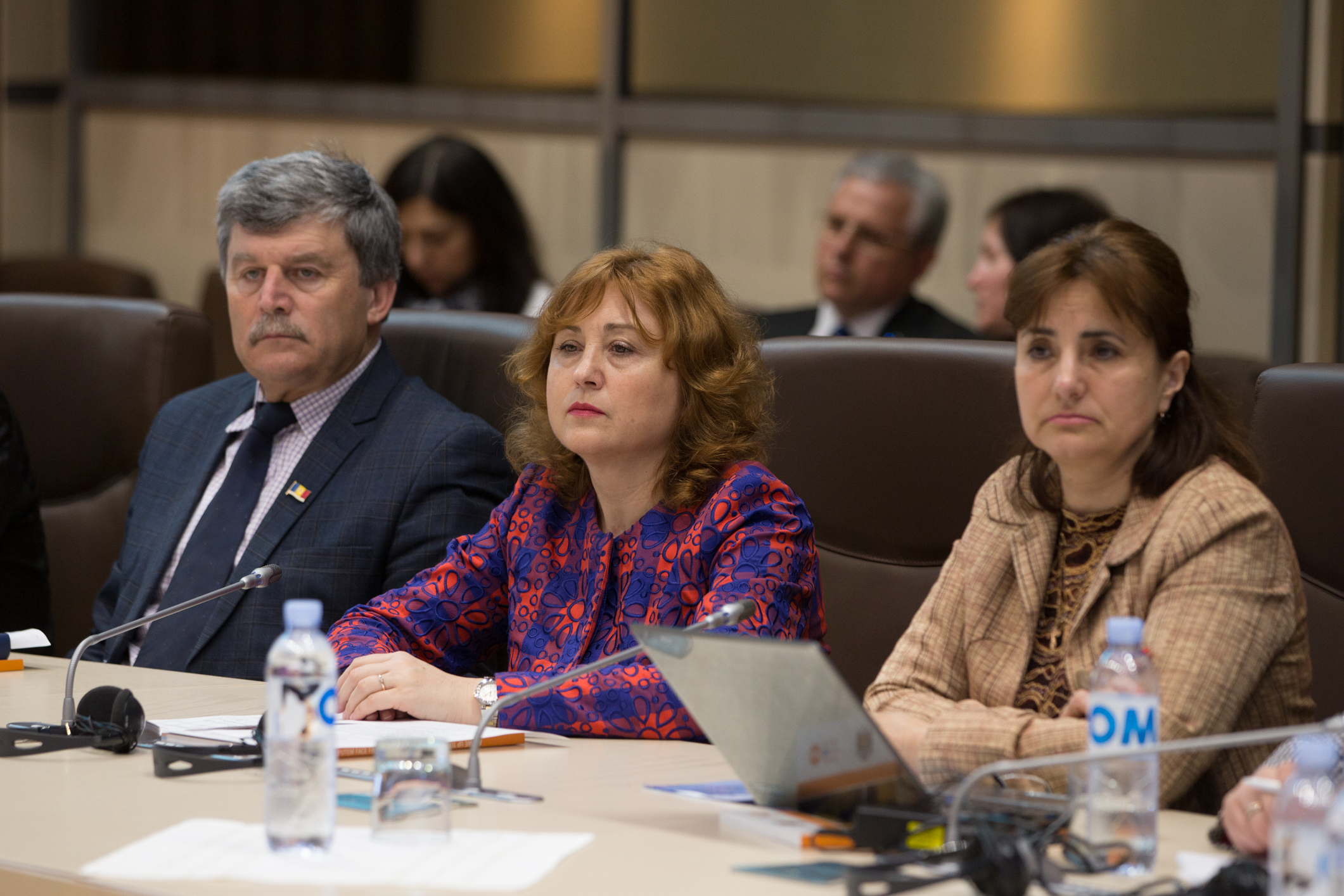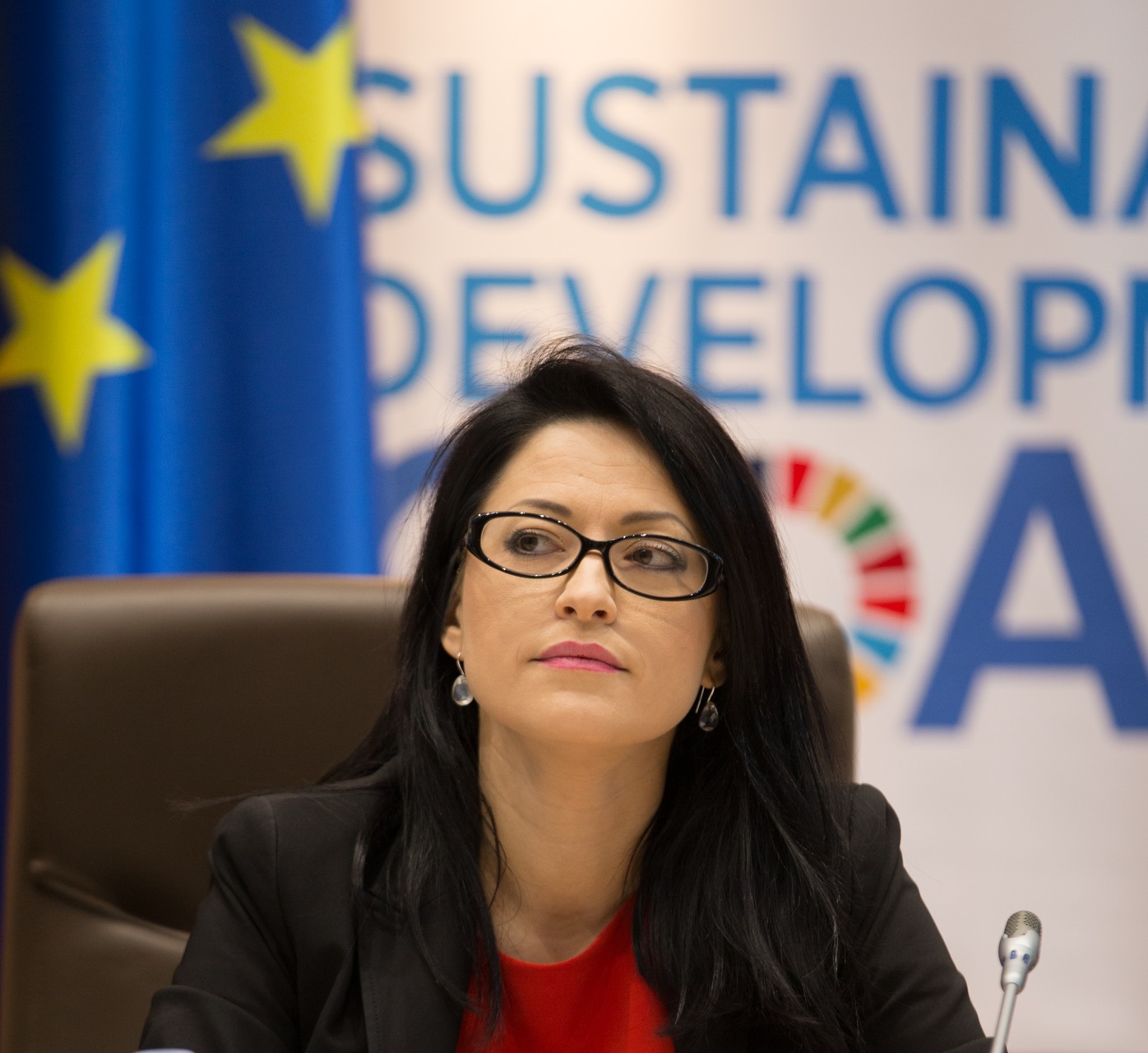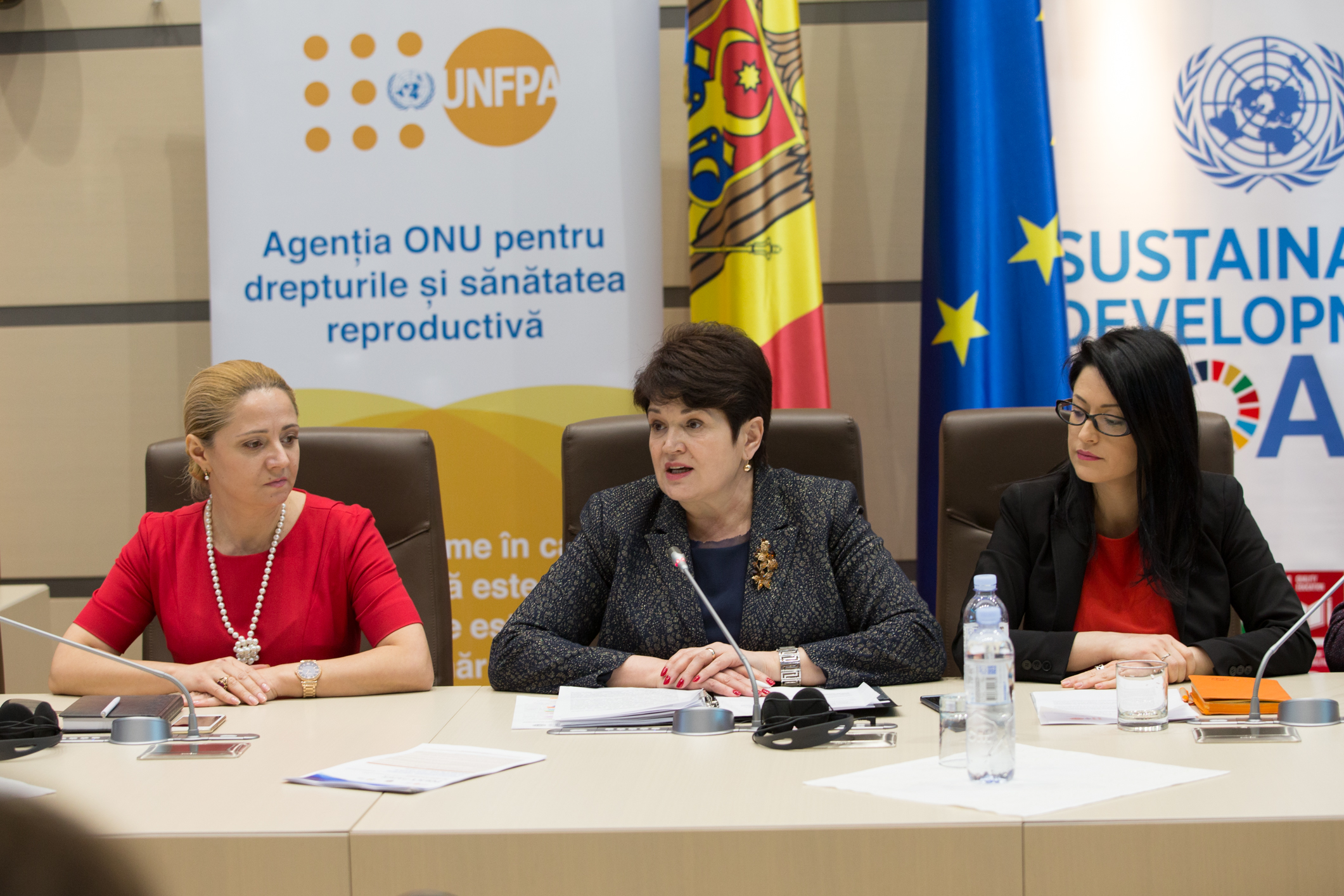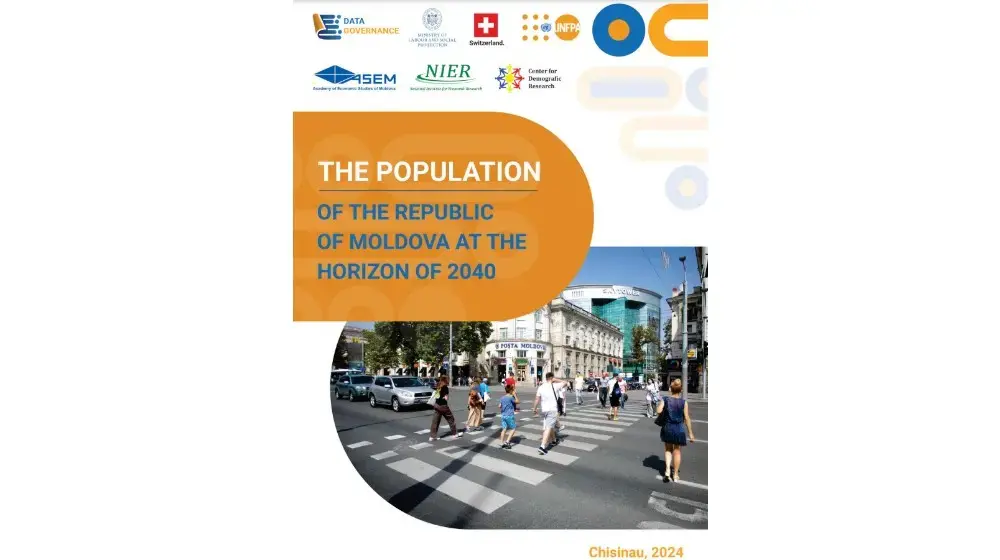Chisinau, 29 March 2018 – The Republic of Moldova faces significant demographic challenges, which continue to intensify. The information was presented during the public hearings on the implementation of the National Strategic Program on Demographic Security of the Republic of Moldova (2011-2015), organised by the Committee for Social Protection, Healthcare and Family in partnership with United Nations reproductive health and rights agency (UNFPA).

According to Olga Gagauz, Head of the Center for Demographic Research of the National Institute for Economic Researches, the forecasts show that by 2035, the number of population could decrease by 2 million people, and one person in three will be older than 60. The determining factor in decreasing the number of population is the mass emigration, especially of young people of reproductive age, low fertility, low life expectancy and population ageing.

Natalia Plugaru, UNFPA Moldova Assistant Representative, mentioned that Republic of Moldova is not the only country facing these challenges. “The experience of other countries proves that in order to meet the demographic challenges we need a mix of policies focused on health and education investments, retaining the elderly on the labour market, support of families in planning the desired number of children, daycare services for young children, shorter, but better paid maternity leave. Financial incentives alone do not have effect in the long run and do not lead to an increase in the fertility rate”.
Natalia Plugaru also spoke about the need to have quality data to understand better the structure of the current families and the barriers that make it difficult for couples to plan and have the desired number of children. ‘UNFPA Moldova is ready to provide technical assistance and expertise in order to conduct such a large survey, which would inform policies in this field and would determine the desired demographic impact in the long run, like it happened in other countries’.

Valentina Buliga, Chair of the Committee for Social Protection, Health and Family stated that the researches in the field showed that there are many factors determining the fertility decline and they are associated with the economic, social, cultural and demographic changes the contemporary society deals with. As she said, unemployment, low salaries, lack of a house, reduced accessibility to health services are the most complex issues that Moldovan families have to deal with. In this context, the MP referred to the recently adopted legislation related to the support of families, young people, etc.
At the end of the hearings, Valentina Buliga encouraged the representatives of the authorities, the development partners, the academia and the leadership of districts present at the meeting to send the proposals and recommendations on improving the legislation for a more complex approach to these issues and submit them to the Government.

See also: The Demographic Situation in the Republic of Moldova: Figures and Key Facts
Morning Interview at Europa Libera Radio of 28 March 2018 with Natalia Plugaru: ‘Policies must focus on the quality of life of people and not on their number’





